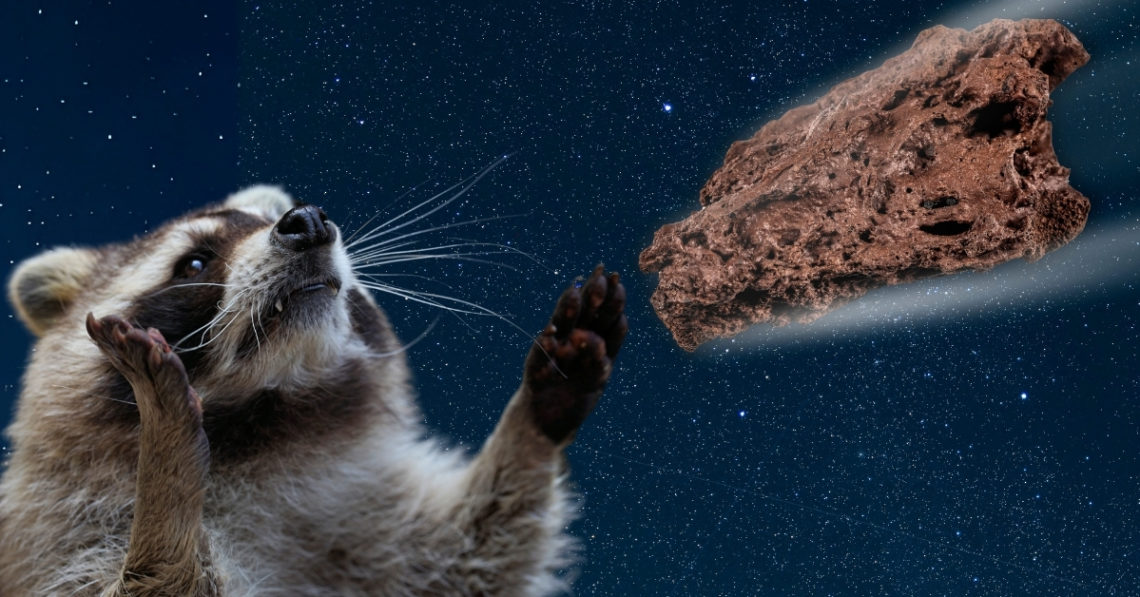Rabies is terrifying in theory, but unless you’re actively taunting raccoons, your odds of dying from it are pretty slim. The same goes for elephant attacks, lightning strikes, and being buried alive in a sand hole at the beach. Surprisingly, your odds of dying from an asteroid impact are slightly higher than all of those—at least according to a new study.
Led by physicist Carrie Nugent of Olin College of Engineering, the research team wanted to put asteroid risk into perspective. They gathered global data on ten unusual causes of death and compared the odds of each over the average human lifetime. Among the candidates were influenza, carbon monoxide poisoning, skydiving accidents, and rabies.
While asteroid deaths are historically nonexistent, the potential for mass casualties means they can’t be ruled out. The researchers focused on rocks at least 140 meters wide—the kind that wouldn’t just ruin one city but could throw the entire planet into survival mode.
Based on current models of near-Earth objects and impact frequency, the team found that the average person is technically more likely to die from an asteroid than from rabies.
You’re Technically More Likely to Die from an Asteroid Than Rabies, Scientists Say
This might sound like a strange calculation, but it has real-world use. Missions like NASA’s 2022 DART test, which successfully shoved an asteroid off course, are expensive. Comparing asteroid risk to more familiar threats helps weigh the cost of prevention.
The team emphasized that their goal wasn’t to create panic or add another item to your list of things to spiral over. Most of the scenarios they analyzed—sand hole collapses, elephant attacks, and asteroid strikes—remain wildly unlikely. But they also pointed out that impact prevention is possible, while most of the other causes on the list can only be mitigated after the fact.
Their findings will appear in the Planetary Science Journal and are currently available on the preprint server arXiv. In the meantime, the takeaway is pretty simple. You’ll probably be fine. But the math says there’s more statistical sense in funding asteroid deflection than you might expect.
And if that sounds like an overreaction, ask the dinosaurs how they felt about the odds.
The post You’re More Likely To Die From an Asteroid Than Rabies, Scientists Say appeared first on VICE.




